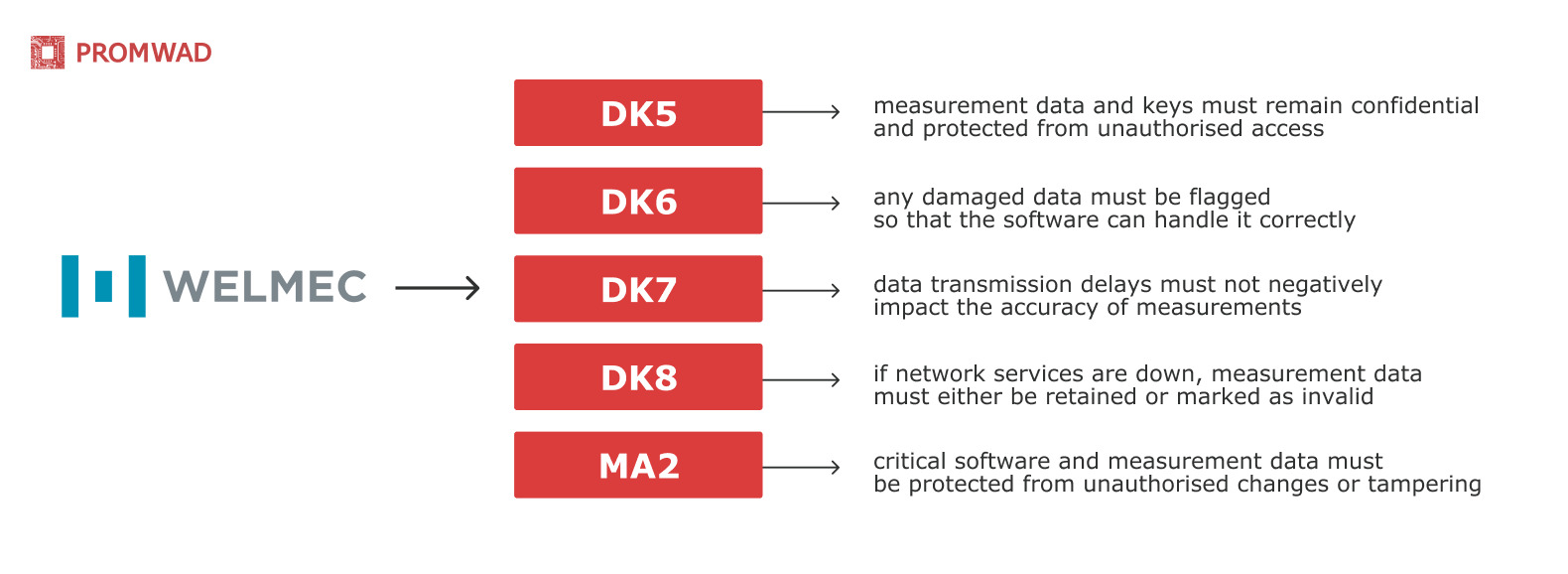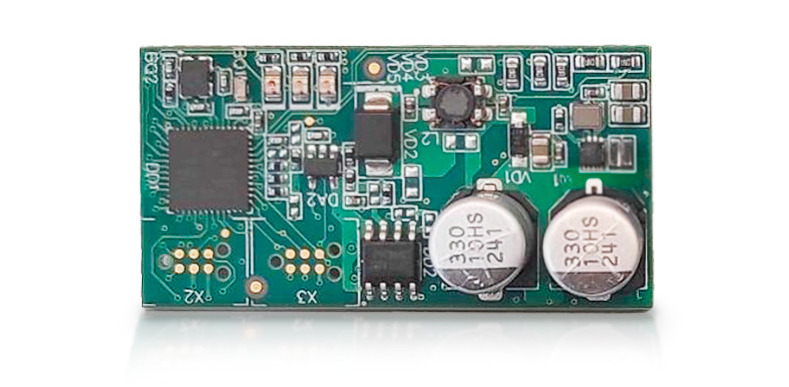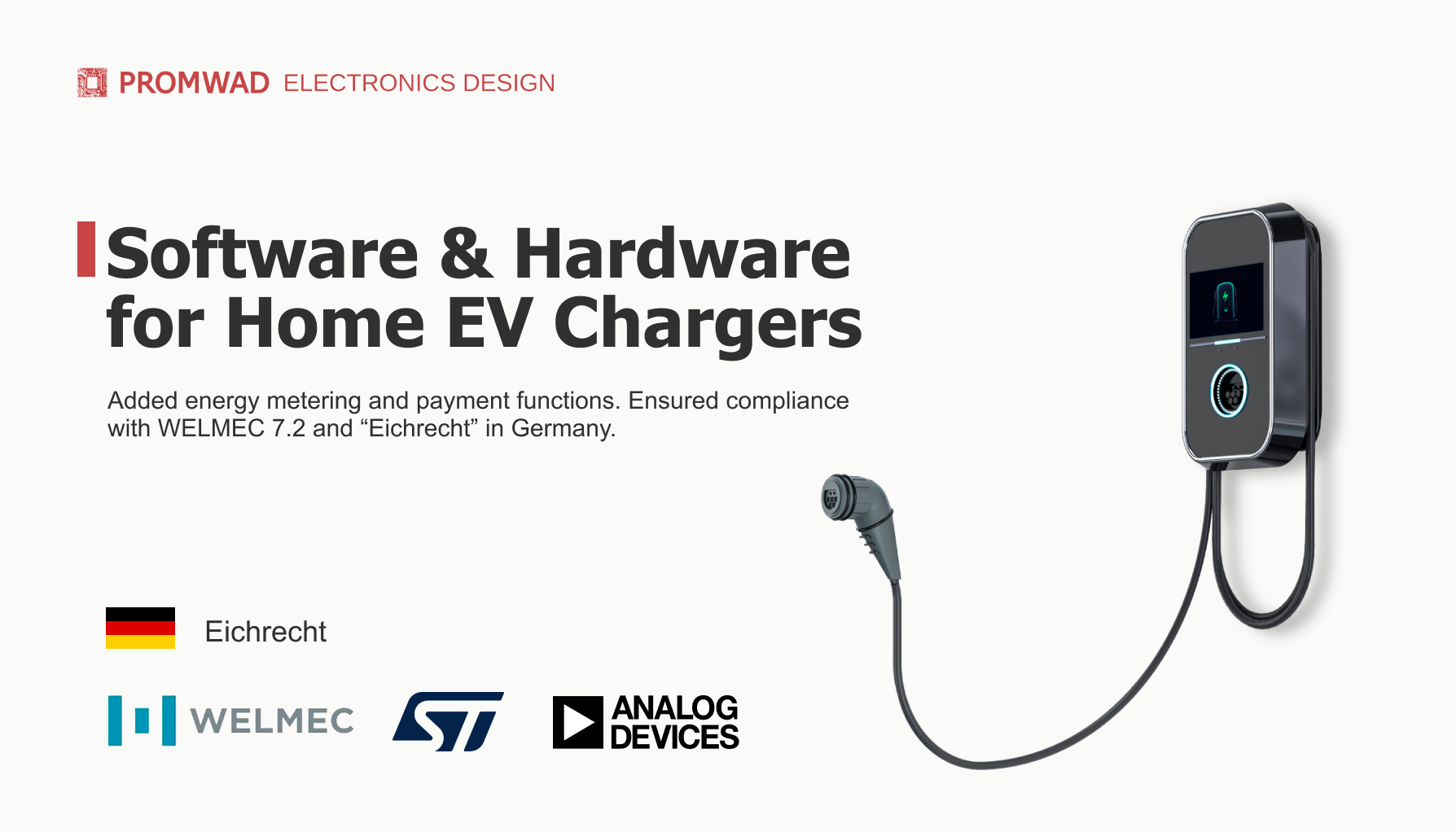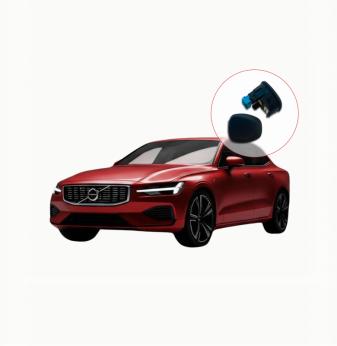Upgrade of Home EV Chargers to Comply with EU Standards
Project in a Nutshell: We developed a hardware and software module to upgrade an EV home charger by adding energy metering and payment functions. The development was carried out in strict compliance with EU regulations, including WELMEC 7.2 and the German calibration law “Eichrecht”. Our customer will enter the market with a new certified, safe and reliable device.
Client & Challenge
A leading global supplier of inverters and solar energy management solutions approached us to upgrade their home electric vehicle charger. The new features required included energy measurement and payment functions. Also, the new subsystem must comply with the EU directives: WELMEC 7.2 and the German calibration law “Eichrecht”. The product certification was, therefore, of crucial importance.
Solution
To meet the client's challenge, we assembled a multi-disciplinary team guided by our project manager:
- a technical lead;
- a circuit design engineer;
- a PCB design engineer;
- two software engineers.
To track progress, we used the client's Jira system to store and share documents, met with the client weekly, and, fortnightly, discussed the results of the sprint.
The Promwad team prepared a detailed report and presentation for each sprint, and once a month, we provided the status of all project tasks and an updated Gantt chart.
The cooperation with the client was organised according to the T&M+Cap model.
1. Compliance with Standards

To bring the device into compliance with the WELMEC 7.2 standard, several essential requirements had to be fulfilled:
- DK5: measurement data and keys must remain confidential and protected from unauthorised access.
- DK6: any damaged data must be flagged so that the software can handle it correctly.
- DK7: data transmission delays must not negatively impact the accuracy of measurements.
- DK8: if network services are down, measurement data must either be retained or marked as invalid.
- MA2: critical software and measurement data must be protected from unauthorised changes or tampering.
2. Hardware Design & Software Development

A prototype of the developed module
Promwad developed both software and hardware parts for the home EV charger, including:
- Development of a CAN-based communication protocol that will allow the charger to communicate with other system components and enable seamless data transfer for energy measurement and control.
- Implementation of records verification in the measurement log using a digital signature: we used the STM32L5 cryptographic module from STMicroelectronics to ensure that the data cannot be altered or compromised.
- Bootloader development for securely running and loading software.
- Development of a simplified file system for NAND flash memory that provides secure data storage in change logs even in the event of a power failure or system restart.
- Implementation of a driver for energy metering chipset: to provide accurate energy metering and real-time energy consumption data by seamlessly integrating the ADE7978 chipset from Analog Devices into the system.
Business Value
Our client received the EV charger subsystem that meets EU and German calibration standards to enter the European market with a reliable, certified, and ready-to-scale product. The updated system is resilient to failures and power outages, and all data is protected by robust cryptographic tools.
More of What We Do for Energy Management
- Power Engineering: explore our expertise in power electronics development, including hardware and software that meets global standards.
- FPGA Design for Home Power Inverter: a case study on hardware and software solution design for a home power plant with a low-power Lattice FPGA.
- IEC 61850 and Seamless Energy Management: explore the standard for integrating smart electronic devices for efficient communication and energy management.















